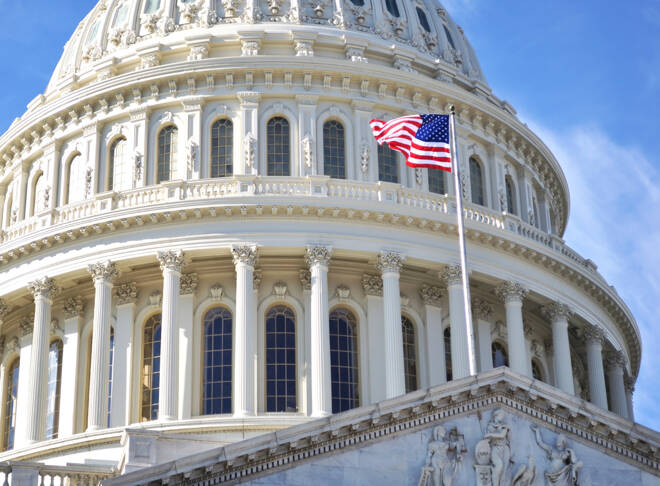Advertisement
Advertisement
Bill That Gives CFTC Crypto Regulatory Powers Introduced to US Senate
By:
The leaders of the Senate’s Agriculture Committee have introduced a new bill that enlarges the role of the CFTC
Key Insights:
- The bill would grant the CFTC exclusive jurisdiction over cryptocurrency trades that meet commodities law.
- The Digital Commodities Consumer Protection Act of 2022 is sponsored by Senators Debbie Stabenow and John Boozman.
- The new bill highlights how digital commodity brokers will be treated similarly to their traditional finance counterparts.
A bipartisan bill that would grant the Commodity Futures Trading Commission (CFTC) expanded authority to oversee the crypto markets has been introduced to the U.S. Senate.
More specifically, the Digital Commodities Consumer Protection Act of 2022 aims to create a definition of ‘digital commodity’ that would include cryptocurrencies like Bitcoin (BTC) and Ethereum (ETH) but not anything that may be a security.
Primary Crypto Regulator
United States Senate Agriculture Committee chair Debbie Stabenow and ranking member John Boozman introduced the bill that would grant the CFTC “exclusive jurisdiction” over cryptocurrency trades that meet commodities law. Notably, the Senate Agriculture Committee oversees the Commodity Futures Trading Commission.
The legislation would require brokers, custodians and dealers involved in the trading of digital commodities, including Bitcoin and Ethereum, to register with the CFTC as their primary regulator or face penalties.
According to a section-by-section breakdown of the bill, the CFTC would have the authority to both oversee digital commodity transactions (except for those leading to the purchase or sale of goods and services) and mandate the registration of digital commodity platforms.
The bill, which has been expected for numerous months, has parallels to the Digital Commodities Exchange Act (DCEA) proposed to the House of Representatives by members of the House Agriculture Committee earlier this year. However, it is worth noting that the Digital Commodities Consumer Protection Act of 2022 is not a companion to the DCEA.
Digital Commodity
The new bill details how digital commodity brokers would be treated similarly to their traditional finance counterparts, given that most crypto exchanges are currently regulated at the state level, with no clear federal guidelines in place for registration or oversight.
In fact, Senator Debbie Stablenow stated:
“Right now, there’s really a patchwork of state regulations and no federal agency to conduct oversight over the cryptocurrencies, and we know that needs to change”.
Although the crypto community has been calling for Congress to create a clear definition of ‘digital commodity’ or a digital security that would enable companies to register with the CFTC or the U.S. Securities and Exchange Commission (SEC) with greater ease, the bill itself does not offer that definition.
Instead, the legislation amends the Commodity Exchange Act to include digital commodities without appearing to define which assets constitute securities.
This suggests that the CFTC can affix its commodities stamp on whatever cryptocurrencies aren’t considered by the SEC to be securities, which defers the definition to the SEC in some respect. SEC Chair Gary Gensler considers most crypto assets to be securities but they have yet to be officially classified in the U.S. as such.
About the Author
Mohadesa Najumiauthor
Mohadesa Najumi is a British writer who has worked within crypto, forex, financial technology, and the stock market industry. Mohadesa received her MSc in Political Science and International Relations at the University of Amsterdam.
Advertisement
